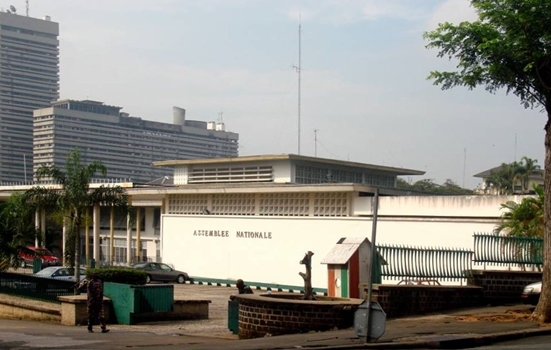
Cellule d’analyse de politiques économiques du CIRES, the Economic Policy Analysis Unit Project of the Ivorian Centre for Economic and Social Research (CAPEC) has carved a niche for itself as the country’s focal point for financial institutions capacity building.
With the support of the African Capacity Building Foundation (ACBF), CAPEC is now the “go to” institution in Côte d’Ivoire for capacity-building activities, especially in economic policy analysis and management.
Established in 1993, CAPEC received its phase one support from ACBF with the completion of the project in June 2000. Thanks to its success, the Executive Board of the ACBF that same year approved a grant to support a second phase.
The objective of the second phase was to consolidate the achievements of the first in the area of capacity building for analysis, formulation and evaluation of economic policies through economic studies and research. It also aimed at strengthening the financial autonomy of the Centre by placing emphasis on the conduct of studies commissioned by public sector institutions, the private sector, as well as donors.
The strategy adopted in the second phase was to make CAPEC a real observatory of economic realities in Côte d’Ivoire by working in close collaboration with the users of its services to ensure efficient integration into the sphere of management of economic policies.
The implementation of the second phase had a definite impact, particularly by strengthening the capacity of managerial staff of the administration and implemented government’s policies. CAPEC also performed well because of the catalytic coordination role it played with respect to capacity-building activities and knowledge generation and sharing initiatives.
Besides the institutional consolidation of CAPEC, other activities covered included research, publication and dissemination of results, strengthening of the capacity of the administration as well as support services. As a result, the Centre has been involved in virtually all capacity-building activities in Cote d’Ivore. As a matter of fact, the Ministry of Economy and Finance uses and disseminates CAPECs training materials.
The ACBF provided a grant of US$1.7 million to CAPEC for the third phase. The grant is to further enhance capacity building. Emphasis of the project is on four major components, including research and studies, training, documentation, and publications. The entire project is estimated to cost US$3,338,895 over a period of four years.
Under this phase are priority themes related to the implementation of the economic policy in Côte d’Ivoire. This component concerns any work commissioned by the government and approved by ACBF and the Steering Committee. The support may also be granted to other structures that submit a request to CAPEC. Besides, CAPEC can also conduct studies and research projects for a fee. The objective of this activity is to mobilize resources to ensure the sustainability of the project. CAPEC also provided contractual support to the Ministry of Economy and Finance, studied the trend of intra-community trade between Côte d’Ivoire and neighbouring countries, the methodology of monitoring, evaluation, and elaboration of impact indicators of social development projects and programmes.
To popularize the results of studies, CAPEC uses three main publications. These are the Economic and Development Policy (PED), the Economic Policy and Development Bulletin (BUPED), and the Economic Policy Letter (LPE). Over the period 2002-2005, a total of 55 documents were published in PED, 65 documents in BUPED, and 89 in LPE. Training has also been done for key government ministries, academia as well as people in the private sector and civil society.





